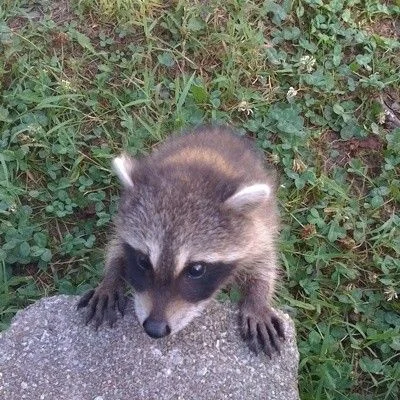Raccoons are common wildlife creatures found throughout Canada, from urban centers like Toronto and Vancouver to rural areas in Alberta and Quebec. While these masked bandits may appear cute and curious, many homeowners wonder: are raccoons dangerous? The answer depends on the situation. While raccoons generally avoid humans, they can become aggressive if they feel threatened, are sick, or are protecting their young. In this guide, we’ll explore raccoon behavior, potential dangers, and how to handle encounters safely.
What Makes Raccoons a Concern in Canada?
Raccoons are highly adaptable animals that thrive in both forests and cities. Their intelligence and dexterity allow them to open garbage bins, break into attics, and even manipulate simple locks. While they usually prefer to avoid humans, certain factors can make them more dangerous:
1. Aggressive Behavior: Will Raccoons Attack Humans?
Raccoons are not naturally aggressive toward people, but they will defend themselves if cornered or provoked. Situations that may lead to an attack include:
- Protecting their young – Mother raccoons are extremely defensive of their kits.
- Feeling trapped – If a raccoon cannot escape, it may bite or scratch.
- Rabies infection – A sick raccoon may act erratically and aggressively.
Do raccoons attack humans unprovoked? Typically, no. Most raccoons will retreat rather than fight, but it’s best to keep your distance.
2. Diseases Raccoons Carry
One of the biggest dangers raccoons pose is disease transmission. They can carry:
- Rabies – A fatal virus that affects the nervous system.
- Raccoon roundworm (Baylisascaris) – Parasites found in raccoon feces that can harm humans if accidentally ingested.
- Leptospirosis – A bacterial infection spread through urine.
- Canine distemper – While not transmissible to humans, it can affect pets.
3. Property Damage
Raccoons are notorious for causing structural damage while searching for food or shelter. Common problems include:
- Torn roof shingles (to access attics).
- Ripped ductwork and insulation.
- Overturned garbage bins and scattered trash.
- Damaged gardens (they eat fruits, vegetables, and even small pets like chickens).
When Are Raccoons Dangerous?
1. During Breeding Season (Spring & Early Summer)
Female raccoons are highly protective of their young. If you accidentally disturb a nest (especially in an attic or shed), the mother may attack.
2. At Night (When They’re Most Active)
Raccoons are nocturnal, so most encounters happen after dark. If you see one during the day, it doesn’t always mean it’s rabid, but it could indicate illness or desperation for food.
3. When They’re Sick (Rabies or Distemper)
A raccoon displaying staggering movements, foaming at the mouth, or aggressive behavior without provocation may have rabies. Never approach a raccoon acting strangely.
Can a Raccoon Kill a Human?
While extremely rare, raccoons can inflict serious injuries if they attack. Their sharp claws and teeth can cause deep wounds, leading to infections. However:
- Healthy raccoons prefer fleeing over fighting.
- Rabid raccoons pose the highest risk due to unpredictable aggression.
- Small children and pets are more vulnerable to attacks.
Are Raccoons Dangerous Warning Sighs
Watch for these warning signs:
Growling, hissing, or arching its back (signs of aggression).
Approaching humans fearlessly (could indicate rabies).
Disoriented walking or circling (a symptom of distemper or rabies).
Foaming at the mouth (a classic rabies sign).
Are raccoons dangerous? Knowing how to react during an encounter can prevent harm to you and the animal
1. Do Not Approach or Feed It
Feeding raccoons encourages them to return, increasing the risk of conflicts.
2. Secure Pets and Children
Raccoons may attack small animals, so keep dogs and cats indoors at night.
3. Make Loud Noises to Scare It Away
Clapping, banging pots, or using an air horn can deter them.
4. Never Trap or Handle a Raccoon Yourself
Improper handling can lead to bites or disease exposure. Always call a professional wildlife removal service.
How to Prevent Raccoon Problems in Canada
1. Secure Garbage Bins
Use raccoon-proof lids or bungee cords to keep trash secure.
2. Seal Entry Points in Your Home
Check for loose roof vents, uncapped chimneys, and gaps in siding.
3. Remove Outdoor Food Sources
- Keep pet food indoors.
- Use animal-proof compost bins.
- Harvest fruits and vegetables promptly.
4. Install Motion-Activated Lights or Sprinklers
These can deter raccoons from entering your yard.
Professional Raccoon Removal in Canada
If raccoons are nesting in your attic, chimney, or shed, DIY removal is risky. IPM Pest Solutions provides humane raccoon removal services across Ontario, British Columbia, and other Canadian provinces. Our methods include:
Live trapping and relocation (following local wildlife laws).
Exclusion techniques (sealing entry points after removal).
Sanitation services (cleaning up droppings to prevent disease).
Myths vs. Facts About Raccoons
Myth: “Raccoons are just oversized rodents.”
Fact: They are procyonids, more closely related to bears than rats.
Myth: “All raccoons have rabies.”
Fact: While possible, most raccoons are healthy. Only a small percentage carry rabies.
Myth: “Raccoons can be kept as pets.”
Fact: In Canada, keeping raccoons as pets is illegal in most provinces.
Are Raccoons Dangerous in Canada?
While raccoons are not typically aggressive, they can pose risks through disease, property damage, and defensive attacks. The best approach is prevention and professional removal if they become a nuisance. If you’re dealing with raccoons in Toronto, Calgary, or elsewhere in Canada, IPM Pest Solutions offers safe and effective wildlife control to protect your home and family.


